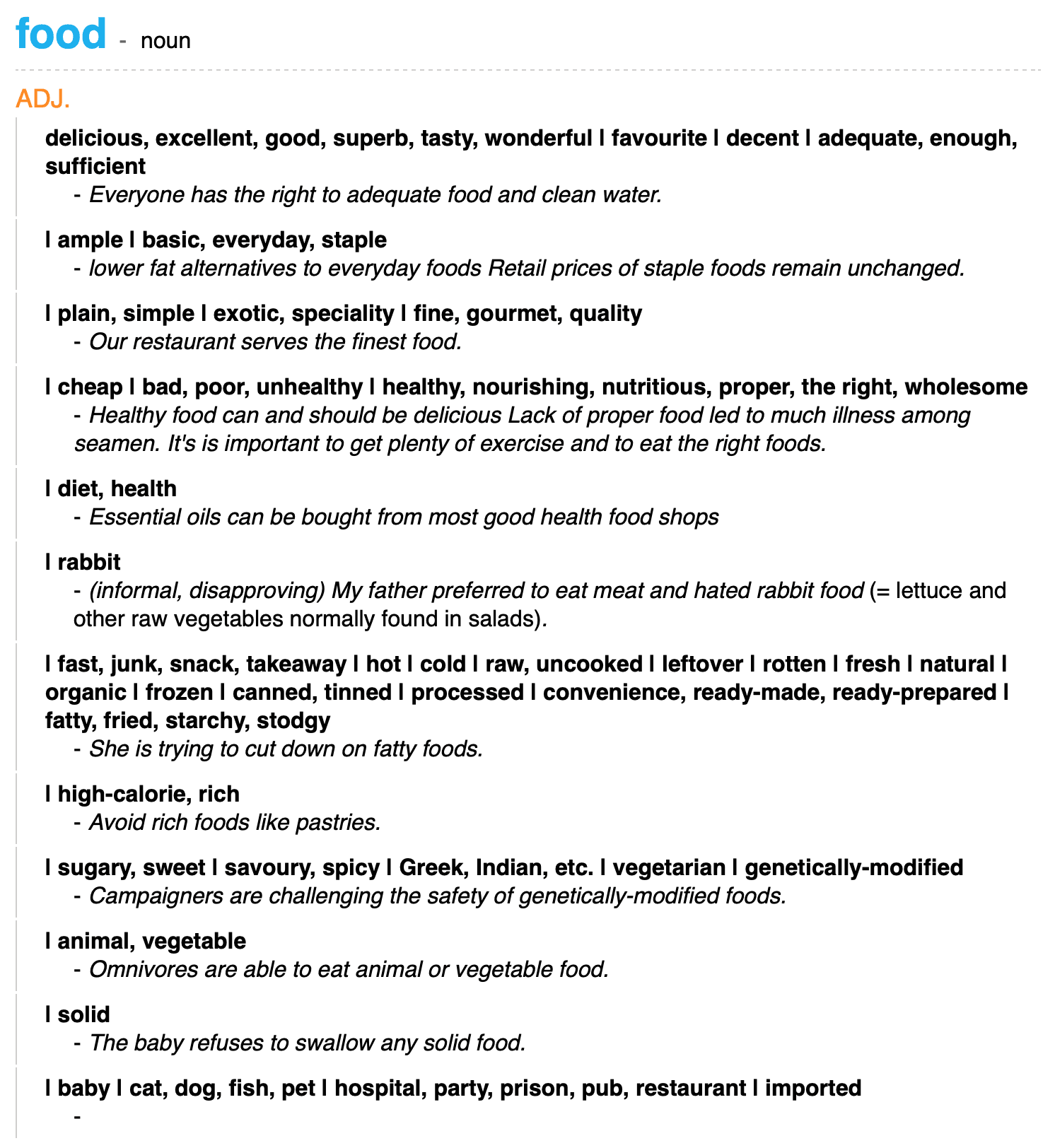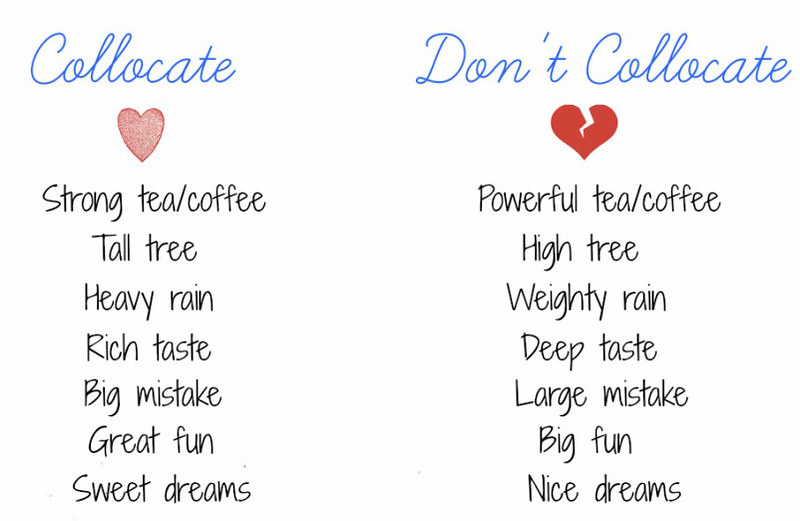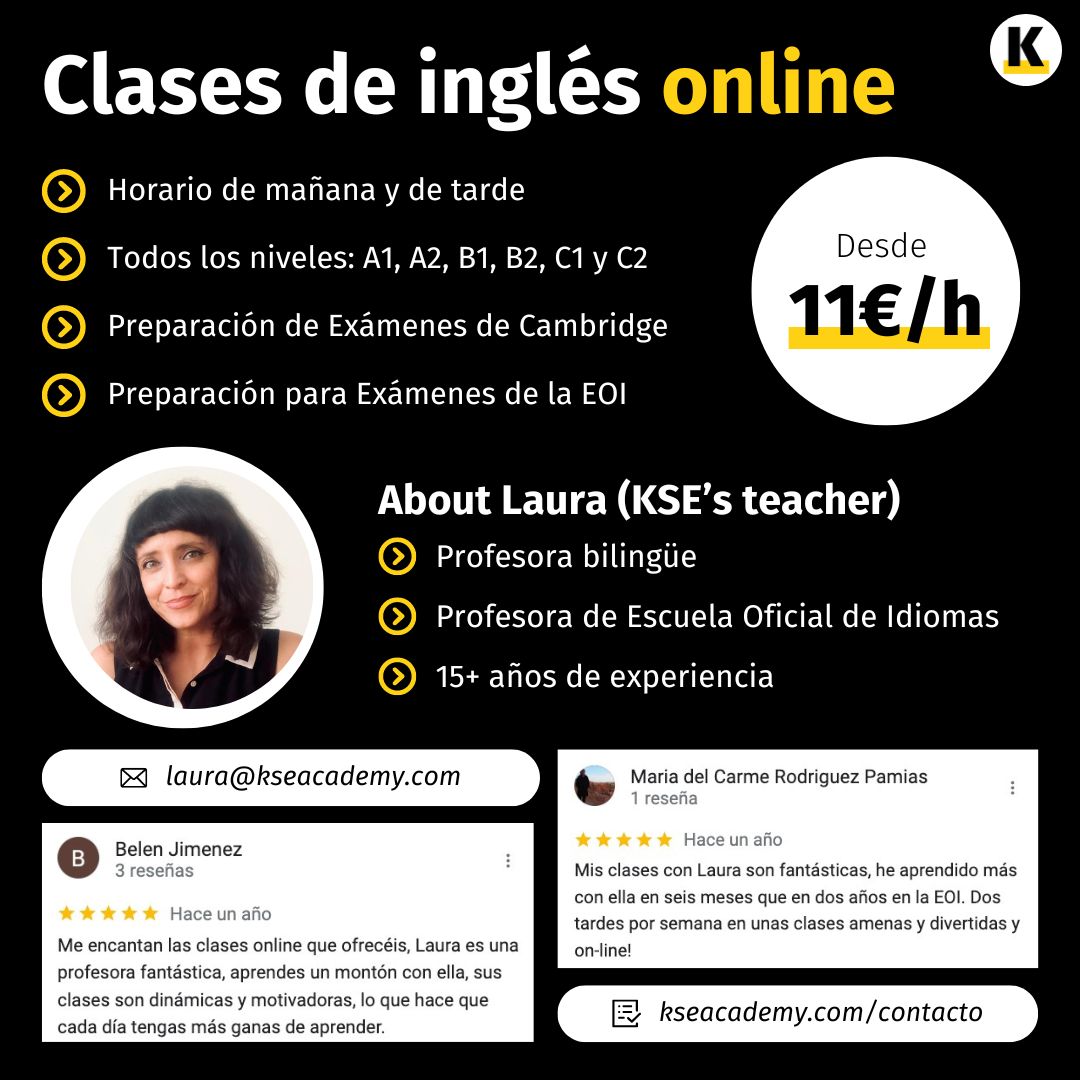Languages rock. Each and every language in the world is unique and awesome. But it’s also a pain in the neck. And that’s mainly because, well, languages are unique and can’t be learnt as translations of other languages. This is because each language has some idiomatic features that are defined by its speakers, and within these idiomatic features we encounter what in English we call collocations. The term collocation, despite what it might sound like in Spanish, is actually a very important concept in language learning.
What are collocations in English?
A collocation is a combination of words that appear together relatively often in a particular language. Now, this might sound like an idiom or a phrasal verb. This is not necessarily true. Idioms and phrasal verbs are collocations, but not all collocations are idioms or phrasal verbs. The picture below shows common adjective-noun collocations with the word «food«:

As you can see, these collocations give «food» a clearer context, making it sound more specific and idiomatic.
Why are collocations important?
Collocations are important because they make your language sound natural. If you master collocations, your English will be more idiomatic, that is, more similar to the way it is spoken by native speakers. Let’s see the following examples:
- English:
I try to make my bed every morning. (NOT
do my bed)
Parents usually tell stories to their children. (NOTsay stories)
Sean likes to surf the web before going to bed. (NOTnavigate the web)
- Spanish:
Yo intento hacer la cama cada mañana. (NO
preparar la cama)
Los padres normalmente cuentan cuentos a sus hijos. (NOdicen cuentos)
A Sean le gusta navegar por internet antes de irse a la cama. (NOsurfear por internet)
More examples in English include the following:

What is the problem with collocations?
Collocations are abstract, they normally have no explanation, and the list is endless. This can be confusing and frustrating for students. When writing, or when doing a Use of English task, many students ask why some of their answers where wrong. Unfortunately, many times the teacher will only be able to say «because that’s HOW IT IS USED«. It’s unfortunate, but it’s true.
How should we study English collocations?
- Treat English as a language in itself, and not as a translation of your own language. Don’t assume that because you say «navegar por internet» it will be «
sail the internet» in English. Therefore, you should avoid translating word by word. If you do translate some expressions to study them, do so with the expression in a clear context that you will remember. - When you learn new expressions, always write them down as part of a sentence where it makes sense. There’s no point memorising that «get» is «conseguir» when you see this sentence «I got home quite late«, where «got» means «arrived».
- Learn language as chunks (in Spanish, bloques de palabras). This means that you should focus on language as a sum of set phrases, rather than a sum of single words. This view is based on Lewis’ Lexical Approach. If you’d like to learn more about it, follow this link (English) or this one (Spanish).
- Read and listen to as much English as you can! Exposure to the language in all its forms will inevitably help you pick different collocations without even realising.
- When you learn a new grammar point, don’t focus on the rules. You should understand the rules, but you must focus on the sound of that grammatical structure. Repeat it and use it until it sounds natural and automatic. A clear example of this is how we use conditional sentences.
- Learn from your mistakes. One wrong answer will teach you more than ten right ones. If you make a mistake, try to memorise what you did wrong so you don’t do it again.
- Don’t despair! It’s normal to have problems with sounding natural in a foreign language. However, you must work hard and make the most of all the exercises you do. If you do, you’ll eventually see an improvement in your skills.
- Use the dictionary. The more, the better. OZDIC is an extremely good collocations dictionary. After you do a piece of writing, read it and look for key words in OZDIC. You may be surprised by the range of collocations you can use!
I hope you try these tips, and that you find them useful. Please share this post with other teachers, students and English learners.
Lists of collocations with examples
- Collocations with get
- Collocations with make
- Collocations with take
- Collocations with do
- Collocations with work
- Collocations with clothes
Don’t forget to keep smiling! 😄
